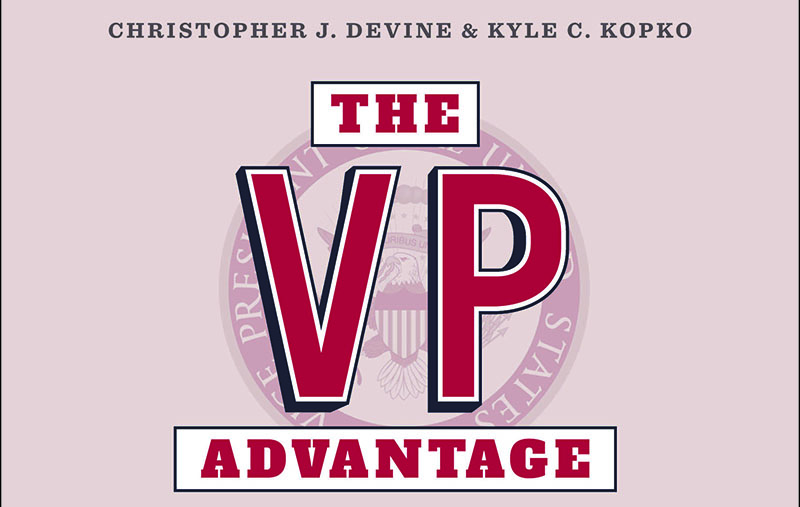 With the current election process underway, Dr. Kyle Kopko’s newest book, “The VP Advantage: How Running Mates Influence Home State Voting in Presidential Elections,” provides insightful information to politicians and researchers alike. Already released in the United Kingdom, the book will be available in the United States in March. “The VP Advantage” looks at the importance of the selection of a running mate and how it can affect voting throughout Presidential elections.
With the current election process underway, Dr. Kyle Kopko’s newest book, “The VP Advantage: How Running Mates Influence Home State Voting in Presidential Elections,” provides insightful information to politicians and researchers alike. Already released in the United Kingdom, the book will be available in the United States in March. “The VP Advantage” looks at the importance of the selection of a running mate and how it can affect voting throughout Presidential elections.
It all started with a road trip in 2008. Kopko, assistant professor of political science and director of the Pre-Law and Honors programs at Elizabethtown College, and co-author Dr. Christopher Devine, assistant professor of political science at Mount Vernon Nazarene University, took a drive from Ohio to South Carolina to visit a friend. During the trip, they discussed the 2008 election and whether Joe Biden and Sarah Palin would influence the outcome. Media outlets were discussing the possibility of Palin affecting voters, and the professors were curious if anyone had researched this topic. Two years and several conference papers and publications later, the book was born.
Their main goal in researching and producing the “The VP Advantage” is to “set the record straight, so to speak, regarding the influence of running mates in presidential elections,” said Kopko. “However, our analysis shows that that is unlikely to happen; vice presidential home state advantages are most likely to occur when a candidate hails from a relatively less populous state and has significant experience as an elected official with that state.”
This research is useful for politicians and it “would be gratifying if campaigns and journalists took notice of our research findings,” said Kopko. Thus far, their work has been featured in The Wall Street Journal, The Washington Post and on the Fox News channel.
One fact from their research that Kopko and Devine found particularly interesting is that “[they] found no convincing, empirical evidence that Lyndon Johnson delivered Texas or the South for the Democratic ticket in 1960,” which the professors say is perhaps, the most famed example of a running mate influencing a presidential election. Another fact they found and discussed in the book is that “by our estimates, there is one case where a running mate could have changed the outcome of a presidential election. Had Al Gore selected then-Gov. Jeanne Shaheen as his running mate over Joe Lieberman, our statistical model projects that Al Gore could have won New Hampshire by a least one point, and he would have secured a majority of votes in the Electoral College and defeated George W. Bush.”
Students at Elizabethtown College will discover will be personally privy to this professors’ research if they take PS 316: The American Electoral Experience in the fall, said Kopko. He plans to implement his book in that class.
Kopko will discuss “The VP Advantage” at 7:30 p.m. Wednesday, March 9, at Bowers Writers House. The event is open to the public.

